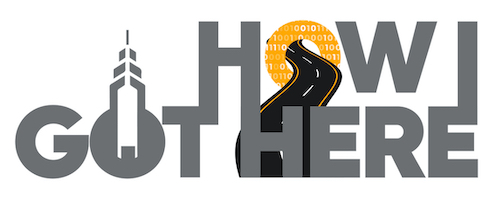In starting his tech career, Fairfax, Virginia-rooted ASCENDING‘s cofounder and engineer Ryo Hang knew his non-technical background would cause some issues. So, he decided to do something that would set himself apart.
“I’m totally different from other people,” Hang told Technical.ly. “They have a very fundamental understanding of computer science. I don’t, and so things are very tough. So that’s why I formed a habit: Always learning, learning, learning.”
Hang wasn’t looking for a tech career when he graduated from the prestigious Tongji University in 2005. Instead, he was trying to find a role in civil construction — something that turned out fruitless. After a year of searching, he still couldn’t find something in his chosen field, so he took a job in quality assurance at Cognizant in his hometown of Shanghai, China.
For the next two years, Hang’s schedule looked like this: working in quality assurance (QA) 9-5, followed by three to four hours of learning to code in the evenings (plus another few hours on the weekends). Hang was a hard worker, though, and his supervisor noticed; after a year and a half, his self-taught “boot camp by himself” paid off and he got the chance to work as a software QA engineer on a US-based contract assignment for Merck.
Landing that first role, though, was difficult since so many companies want someone tech job applicants to come with experience.
“Because people are always looking for experience, I would tell people: Looking for people with experience is always a good thing, but it’s not really mandatory based on your actual use case or scenarios,” Hang said.
Following his stint at Merck, Hang went on to hold engineering roles at Pepsi and Paradigm, among other employers (and kept up his nighttime coding instruction). In 2017, he took on a new challenge: becoming the technical founder of the aforementioned ASCENDING, a cloud consulting firm where he’s now learning about and shifting into sales engineering.
But, especially when landing that first gig, the technical experience was something he didn’t have. Instead, during interviews, he asked hiring managers to tell him a problem they were looking to solve and let him build a product. Every week he would have a meeting and receive feedback on the project; eventually, he got hired full-time.
“Once you solve a problem, you actually prove you have a value not just based on the experience,” Hang said. “That way, you have a value on the table and it’s much easier for people to hire you or give you a contract to work for them.”
Hang is still sussing out what the next phases of his career will look like, though he’s confident he’ll stay at ASCENDING for a while. But he hopes others can learn and be inspired by his story — particularly since tech, Hang said, is known for embracing folks with different backgrounds. He noted that there’s a lot of free and inexpensive content out there, for people to teach themselves coding, that he hopes those looking to follow a similar path with embrace. You do need persistence and consistency, he said, but it’s entirely possible to build your own career without an official bootcamp.
“The change does not happen overnight,” Hang said. “You have to continue to spend your time learning by yourself, and don’t get discouraged by other people.”

This is How I Got Here, a series where we chart the career journeys of technologists. Want to tell your story? Get in touch.
Before you go...
Please consider supporting Technical.ly to keep our independent journalism strong. Unlike most business-focused media outlets, we don’t have a paywall. Instead, we count on your personal and organizational support.
3 ways to support our work:- Contribute to the Journalism Fund. Charitable giving ensures our information remains free and accessible for residents to discover workforce programs and entrepreneurship pathways. This includes philanthropic grants and individual tax-deductible donations from readers like you.
- Use our Preferred Partners. Our directory of vetted providers offers high-quality recommendations for services our readers need, and each referral supports our journalism.
- Use our services. If you need entrepreneurs and tech leaders to buy your services, are seeking technologists to hire or want more professionals to know about your ecosystem, Technical.ly has the biggest and most engaged audience in the mid-Atlantic. We help companies tell their stories and answer big questions to meet and serve our community.
Join our growing Slack community
Join 5,000 tech professionals and entrepreneurs in our community Slack today!

The person charged in the UnitedHealthcare CEO shooting had a ton of tech connections

From rejection to innovation: How I built a tool to beat AI hiring algorithms at their own game

Where are the country’s most vibrant tech and startup communities?



